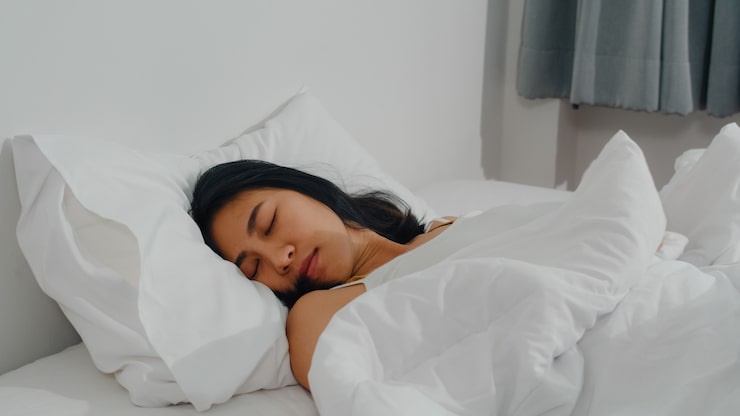Ever notice how everything feels harder after a bad night’s sleep? You’re not imagining it—sleep and mental health are closely linked. Poor sleep can leave you feeling stressed, irritable, or overwhelmed, and anxiety or depression can make it hard to fall or stay asleep.
It becomes a loop, but knowing how sleep and mental health affect each other is the first step to breaking it. The good news: with the right habits, you can improve both your sleep and your mental well-being.

How poor sleep affects your mental health
Sleep does more than recharge your body—it helps keep your emotions and thinking steady. When you don’t get enough, even small problems can feel huge, and your ability to manage feelings or think clearly drops.
The emotional ripple
One bad night can make you cranky or on edge. When sleepless nights pile up, your brain struggles to handle stress and control emotions. Small issues seem bigger and feelings of anxiety or sadness can grow. Over time, chronic poor sleep raises the chance of mood disorders like depression.
Brain chemistry and sleep loss
Brain chemicals that help regulate mood—like serotonin and dopamine—need good sleep to work well. Without it, those systems fall out of balance, which can lead to sadness or emotional instability. Long-term lack of sleep also raises cortisol, the stress hormone, making it harder to cope with stress.
Cognitive effects: more than just fog
Lack of sleep doesn’t only affect feelings—it clouds thinking too. Memory, focus, and decision-making suffer. That mental fog makes simple tasks feel harder, which increases frustration and stress. It becomes a cycle: poor sleep makes daily life tougher, which can lead to worse sleep.
The link to ongoing conditions
For many, poor sleep isn’t just a habit—it’s part of ongoing mental health problems. Insomnia can be both a symptom and a risk factor for depression and anxiety. Conditions like PTSD often come with disrupted sleep, like nightmares or broken sleep, which can worsen symptoms. Mental health issues can disrupt sleep, and poor sleep can make those issues harder to manage—so improving sleep matters for protecting your mental health.
How to improve sleep
Breaking the sleep cycle starts with simple habits and a calm sleep space. Try these tips:
– Keep a regular sleep schedule: go to bed and wake up at the same times every day, even on weekends.
– Cut evening disruptors: avoid caffeine, big meals, and screens for at least an hour before bed.
– Make your bedroom sleep-friendly: keep it cool, dark, and quiet; choose a comfortable mattress and pillows; use blackout curtains or white noise if needed.
– Wind down each night: read, stretch, or listen to calming music to tell your brain it’s time to relax.
These small changes can really improve how well you sleep and how rested you feel.
Manage stress before bed
Stress makes falling asleep tough, but calming techniques can help. Try:
– Deep breathing or meditation to slow your mind.
– Journaling to clear out worries or list things you’re grateful for.
– Gentle activities like a warm bath, light yoga, or soothing music to help your body relax.
Adding even one of these to your evening can reduce stress and make sleep easier.
Try natural sleep aids
Along with good sleep habits, some natural supplements can help:
– Melatonin: helps reset your sleep-wake cycle, useful for jet lag or shifting schedules.
– Magnesium: relaxes muscles and calms the nervous system.
– Valerian root: an herb used to promote relaxation and better sleep.
– Hypnozan: a supplement combining ingredients like valerian, lemon balm, and hops to support relaxation.
– Chamomile: commonly drunk as tea, it contains compounds that promote calm.
– Passionflower: can reduce anxiety and support more restful sleep.
Use these alongside healthy sleep habits, and talk to a healthcare professional before starting supplements, especially if you take other medications.
Final thoughts: breaking the cycle
Sleep and mental health are deeply connected, but they don’t have to control your life. Small, steady changes—like a bedtime routine, stress management, and safe use of natural aids—can lead to better sleep and clearer thinking. It may take time, but the rewards are worth it: better sleep means improved mood, sharper thinking, and more enjoyment in daily life. Try one change today and see how it affects your tomorrow.